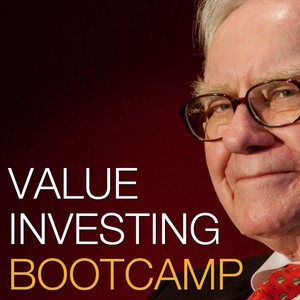![Compliance Perspectives - Jim Passey on Making it to the Top [Podcast]](https://storage.googleapis.com/goodpods-images-bucket/episode_images/36e319c5b3007f058fddbac1d544181fc9c20d2ddeb5cec373dc0a16210561c5.avif)
Jim Passey on Making it to the Top [Podcast]
06/29/21 • 11 min
Previous Episode
![undefined - Carrie Penman on Helpline Data Since the Pandemic [Podcast]](https://storage.googleapis.com/goodpods-images-bucket/episode_images/36e319c5b3007f058fddbac1d544181fc9c20d2ddeb5cec373dc0a16210561c5.avif)
Carrie Penman on Helpline Data Since the Pandemic [Podcast]
Post By: Adam Turteltaub NAVEX Global recently released its 2021 Risk & Compliance Incident Management Benchmark Report. It is a document rich in data about what’s going on with helplines and incident management. To understand lessons learned from the data we invited Carrie Penman, Chief Risk & Compliance Officer from NAVEX, to join us. She reports that there is finally an answer to a question many have wondered: what has the pandemic’s impact been on helpline call volume. Interestingly, Carrie reports that overall call volume declined. April and May 2020 saw the steepest drops, not surprisingly since that was the time when businesses were closing quickly and employees were adjusting. But, she points out, it was not just a two-month phenomenon. Even at the end of 2020 volume had not returned to pre-pandemic levels. Drilling down into the data there were significant variations by industry, with differences caused by whether organizations had switched to a work-from-home mode or had large number of essential workers still on the job site. But what about the quality of the calls? Carrie reports that the substantiation rate of 42% was in line with previous years. There was one exception, though: environmental health & safety. Substantiation rates were lower, and the number of reports increased substantially, likely due to COVID-19 related concerns. Interestingly, 76% of EH&S reports were anonymous vs. just 54% of business integrity claims, most likely not out of fear but because complaints about things like not wearing a mask where a call back was not likely necessary. The report also includes news that the median days between incident observed and reported increased from 21 to 28 days. That’s troubling for investigators given that memories fade over time. Finally, we discuss the perennial concern about whether anonymous reports can be trusted. The data showed that anonymous reports were substantiated at a much lower rate: just 35% vs. 50% of reports with a name attached Listen in to learn more, including some potentially troubling numbers about retaliation.
Next Episode
![undefined - Jabu Sengova on Government Ethics Programs [Podcast]](https://storage.googleapis.com/goodpods-images-bucket/episode_images/36e319c5b3007f058fddbac1d544181fc9c20d2ddeb5cec373dc0a16210561c5.avif)
Jabu Sengova on Government Ethics Programs [Podcast]
Post By: Adam Turteltaub “Government ethics” is not an oxymoron. In fact, according to Jabu Sengova, Ethics officer for the City of Atlanta, government ethics programs are very real. In this podcast she provides an overview of how Atlanta’s works. She shares that when it comes to ethics in the public sector there are several areas of focus including conflicts of interest and the misuse of public assets such as credit cards and cars. Managing conflicts of interest has been a particular problem during the pandemic. With employees working from home there has been a noted increase of incidents revolving around second jobs and operating a business on the side. It is a problem likely facing the private sector as well. And, of course, there are the ongoing challenges involving gifts and gratuities, especially for those city employees who work regularly with contractors and vendors. Meeting these challenges isn’t easy for the ethics team. They serve a large 8,000 person employee base with very limited resources. In addition, until recently there was a strong preference for in-person training. Atlanta is only now moving into elearning. Yet, despite lagging in some areas, there is much, Jabu argues, that corporate compliance programs could learn from government ones, including resiliency. She notes that in her time there she has worked for three different mayors. Business could also learn about doing more with less, she believes. For much of her time in Atlanta, there were only two or three members of the ethics team. Listen in to learn more about government ethics programs and what everyone can learn from them.
If you like this episode you’ll love
Episode Comments
Generate a badge
Get a badge for your website that links back to this episode
<a href="https://goodpods.com/podcasts/compliance-perspectives-117862/jim-passey-on-making-it-to-the-top-podcast-16040012"> <img src="https://storage.googleapis.com/goodpods-images-bucket/badges/generic-badge-1.svg" alt="listen to jim passey on making it to the top [podcast] on goodpods" style="width: 225px" /> </a>
Copy




